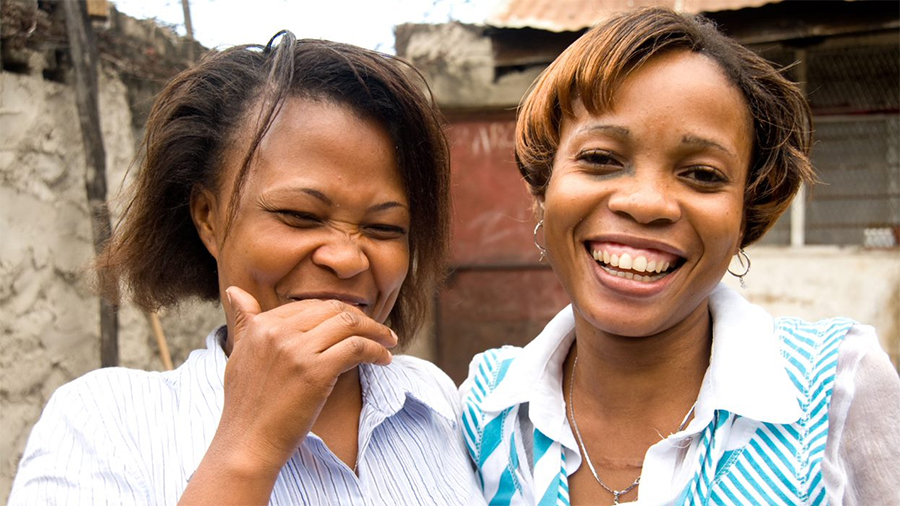Adolescent Girls in Tanzania Adapt to COVID-19 Restrictions to Continue Work Against HIV/AIDS

Adolescent girls (aged 12-19 years) in sub-Saharan Africa account for 71 percent of new annual HIV infections among adolescents and face higher HIV infection rates than males the same age. Additionally, HIV/AIDS remains the leading cause of death among adolescent girls and young women, ages 15-19, in eastern and southern Africa. The U.S. Centers for Disease Control and Prevention (CDC) works with partners in Tanzania to help adolescent girls and young women with tailored, comprehensive programs that provide skills to safely navigate their future, and to help the country reach HIV epidemic control.
Through community-based interventions and programs and CDC support, ICAP aims to deliver comprehensive HIV prevention services, from testing to viral load suppression support, across seven regions of Tanzania this year. Working with the Government of Tanzania and CDC, ICAP delivers community-based HIV services in an accessible and appropriate manner for all Tanzanians who need them.
CDC and ICAP began implementing the DREAMS (Determined, Resilient, Empowered, AIDS-free, Mentored and Safe) initiative in the Kagera region of Tanzania in 2018, using funding from the U.S. President’s Emergency Plan for AIDS Relief (PEPFAR) program. DREAMS was established in 15 countries with the goal of reducing HIV infections by 40% among young girls by providing a comprehensive package of services directly to the girls, their parents, and their community based upon each girl’s unique needs. DREAMS services include HIV testing, peer support through DREAMS groups, economic empowerment through group savings, and income-generating activities to females age 15-24 years.
The DREAMS program overcame diverse challenges over the past two years and also encountered pressures due to the COVID-19 pandemic. One unique challenge that remains is the recruitment and retention of at-risk young women in the program. When Furaha* was identified as a potential DREAMS participant, she was 24 years old with a kindergarten-level education. Unable to read or write and only able to count to 10, Furaha was embarrassed about her education level and hesitant to join DREAMS. Providing for her family and two children left her little time to complete the program. Valentina, a DREAMS community outreach volunteer, met with Furaha several times to discuss the services available. Furaha was especially interested in how the DREAMS savings and loans group could help her start and sustain a business. However, before Furaha could join, she would first have to learn how to read and write.
Through a tailored approach to Furaha’s schedule and other concerns, Valentina successfully recruited and taught Furaha vital literacy skills.
“Valentina created a friendly environment for me to learn and ensured that I feel free. She took me step by step through the learning process and emphasized that I should also take extra initiatives to practice independently. Thanks to DREAMS, I can support my children with some of their homework, and in my business, I can manage simple calculations. I feel like I have added value in my life and to my family, and I couldn’t be prouder of myself,” Furaha said.
Beyond day-to-day challenges in Kagera, the COVID-19 pandemic also impacted enrollment in the DREAMS program. Group meetings, which are key to addressing loans and savings issues for established groups, came to a halt.
Farijika* is a DREAMS group of 25 young women with a successful saving and loans program. In May 2020, after one year, the group reported savings of 2,320,000 Tanzanian shillings (approx. $1,000 U.S.). With the halting of group gatherings due to COVID-19, Farijika adopted mitigation strategies, including all-remote communication through WhatsApp, phone, and text messaging.
Thanks in part to these strategies, the group completed the DREAMS program in December 2020, after 18 months of engagement. At the end of the program, all the 25 participants continue to report an HIV negative status. The FIKIA program is also helping the group establish a commercial bank account and apply for a government interest-free loan, allowing the group to thrive in the future.
“There was a time when I couldn’t see my future as an independent girl; all I could think of was how my boyfriend would take care of me. Seeing how DREAMS has transformed us, made us strong in economic and health-related issues is a huge success for me. We are in the process of accessing a loan, and I am looking forward to seeing how the loan will strengthen our small businesses,” one group member commented.
With support from CDC and ICAP, the DREAMS program in Kagera has reached more than 36,000 young women with comprehensive testing, family planning, and psychosocial services. While overcoming routine and extraordinary challenges, DREAMS in Kagera works tirelessly to prevent HIV transmission and ensure all young women have a bright, healthy, and safe future.
(* = Name change)